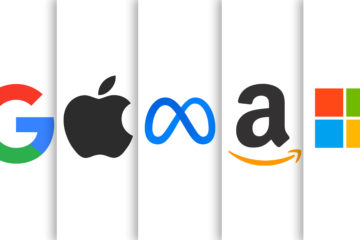The Market Institute President Charles Sauer has a new article in RealClear Markets looking at the calls by both the Left and the Right to regulate ‘Big Tech.’
“The New York Times recently admitted what anyone paying attention has known, or at least suspected, since 2020: the Hunter Biden emails found on the infamous “laptop from hell” are real emails, not a Russian hoax.
The claim that these emails were Russian disinformation was used to justify removing the New York Post story that broke “Huntergate” from Twitter and Facebook. The attempt to squash a story that could have damaged Joe “Big Guy” Biden’s Presidential campaign sparked understandable outrage among Republican politicians, conservative commentators, and – again – anyone paying attention. This outrage has resurfaced following the Time’s belated admission thar Hunter Biden, not Vladimir Putin, is responsible for the emails.
Rep. Darrell Issa (R-Calif.) called for an investigation of whether media and tech companies colluded with Democratic Party officials and activists to bury the Hunter Biden story. While I usually oppose Congressional investigations into the actions of private companies – even when those companies engage in actions I strongly disprove of – in this case an investigation may be useful to the cause of free speech. This is because an investigation into this may also help shed light on how often Big Tech suppresses stories and censors’ individuals to please powerful progressive politicians, donors, and activists.
As most readers know, Big Tech has seemingly engaged in a pattern of silencing those who dare question the approved government narrative on a variety of issues, including the role US policy played in fomenting the Ukraine crisis or even discussing COVID numbers correctly.
The solution to this problem is the separation of government and social media. Politicians should stop “encouraging” tech companies to restrict “unapproved” information and views. When President Biden calls on Facebook and Twitter to remove certain content, he is violating the spirit, if not the letter, of the First Amendment. Sadly, some misguided conservatives want the government to pass laws imposing new regulations on tech companies to force them to treat all news and opinions “fairly.”
These pro-regulation conservatives forget that any federal law or regulations dictating what content media platforms must carry violates the first amendment rights of private companies to deny platforms to those whose views they, or the majority of the consumers, find offensive. These laws could also be used to limit the ability of companies to deny platforms to those actually pedaling fake news (as opposed to news that makes the political and elite media uncomfortable) and offensive views like Holocaust denial, racism, sexism, anti-Christian bigotry, and promotion of the “music” of Taylor Swift.
This will inevitably lead to politicians, judges, and bureaucrats setting “guidelines” on what speech can and cannot be restricted from social media platforms. If conservatives think they are getting a bad deal from private fact checkers imagine when the fact checkers are federal bureaucrats, many of whom share the progressive belief that any opinion to the right of Nancy Pelosi is “hate speech”?
Another result could be that many platforms will simply restrict all political speech, limiting their content to cat videos and the latest diet, exercise, and fashion fads adopted by “influencers.”
Ironically, “Huntergate” shows that government intervention is not needed. The attempt to suppress the story may have given it more attention than it otherwise would have received. This is due to the “Streisand effect,” named for singer Barbra Streisand’s efforts to keep pictures of her beach house from reaching the public. Streisand’s effort to kill publication of the pictures caused a spike in public interest, meaning more people sought out and saw the images then they would have had the singer’s attempts to suppress the picture, not become a major story.
Similarity, outrage over the attempt to hide the laptop story led conservative media to give the story more attention than it otherwise would have received in the weeks leading up to the election. After all, there were many stories conservatives should have focused on regarding Biden’s policies and record. The attempt to suppress it allows grassroots activists to get around the media by sharing their story with their family and friends.
Huntergate has increased distrust of big tech and mainstream media. It increased the demand of many smaller and newer social media companies, such as MeWe, Gab, and Parler which became more appealing to conservatives and others by emphasizing their commitment to free speech. This is how the marketplace works.”


